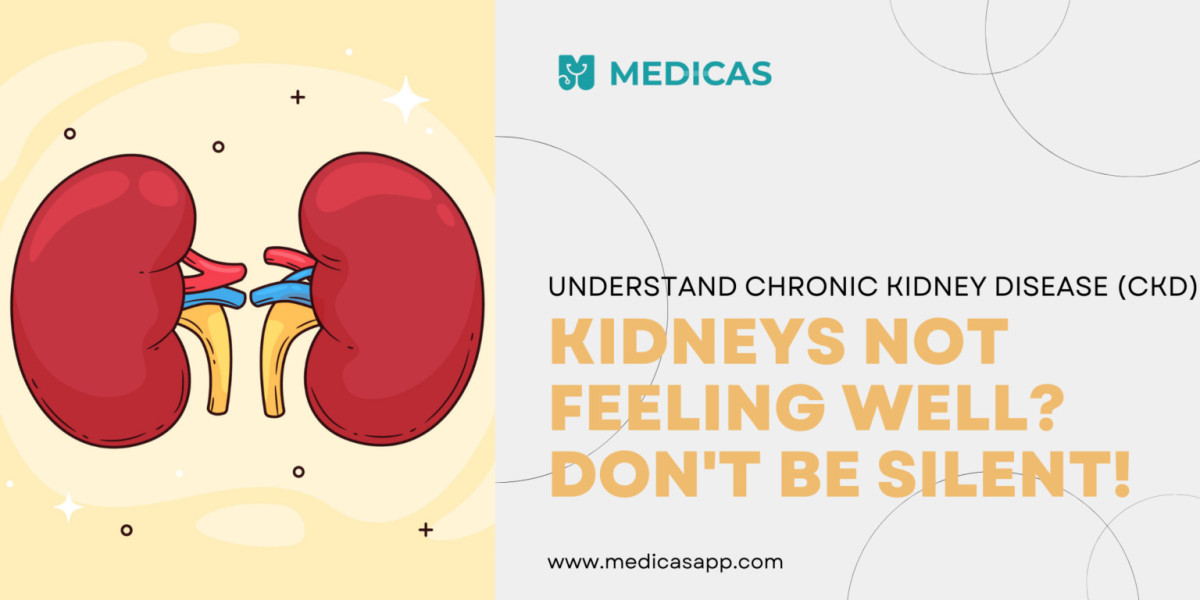Introduction
Chronic Kidney Disease (CKD) is a progressive condition characterized by a gradual loss of kidney function over time. It is a significant health issue, affecting millions of people worldwide and leading to severe complications if left untreated. This article delves into the causes, stages, symptoms, and management of CKD, offering valuable insights for those seeking to understand and prevent this silent yet serious condition.
What is Chronic Kidney Disease?
Chronic Kidney Disease occurs when the kidneys are damaged and cannot filter blood as effectively as they should. This leads to an accumulation of waste and excess fluids in the body, which can cause various health problems. CKD progresses through five stages, ranging from mild damage (Stage 1) to complete kidney failure (Stage 5).
Causes and Risk Factors
The most common causes of CKD include diabetes and hypertension. These conditions can damage the blood vessels in the kidneys, impairing their ability to function properly. Other risk factors include:
- Chronic glomerulonephritis: An inflammation of the kidney's filtering units.
- Polycystic kidney disease: A genetic disorder that causes cysts to grow in the kidneys.
- Prolonged use of painkillers: Certain medications can harm kidney function over time.
- Family history of kidney disease: A genetic predisposition can increase the risk.
Diagnosis and Monitoring
Diagnosis of CKD typically involves a combination of blood tests, urine tests, and imaging studies. The following tests are commonly used:
- Blood tests: Measure levels of creatinine and urea nitrogen.
- Urine tests: Check for protein or blood in the urine.
- Imaging tests: Such as ultrasounds or CT scans, to examine kidney structure.
Regular monitoring is essential for individuals with CKD to assess the progression of the disease and adjust treatment plans accordingly.
Treatment and Management
While CKD cannot be cured, its progression can often be slowed with proper treatment. Management strategies include:
- Medications: To control blood pressure, blood sugar, and cholesterol levels.
- Dietary changes: Low-sodium, low-protein diets may be recommended.
- Lifestyle modifications: Regular exercise, quitting smoking, and limiting alcohol intake.
- Dialysis or transplantation: For advanced stages, where kidney function is severely compromised.
Preventive Measures
Preventing CKD involves managing risk factors and maintaining overall health. Key preventive measures include:
- Regular health screenings: Especially for those with diabetes, hypertension, or a family history of kidney disease.
- Healthy diet and lifestyle: Reducing salt intake, staying active, and avoiding smoking.
- Controlling underlying conditions: Keeping blood sugar and blood pressure levels in check.
Conclusion
Chronic Kidney Disease is a significant health concern that requires early detection and proactive management. By understanding the causes, stages, and treatment options, individuals can take steps to prevent or slow the progression of CKD. Regular check-ups and a healthy lifestyle are crucial in maintaining kidney health and preventing complications.
For those seeking comprehensive health assessments, the top health packages in India offer a range of diagnostic tests and preventive measures. These packages provide valuable insights into your health status and help in the early detection and management of conditions like CKD. Take charge of your health today and ensure a better quality of life for tomorrow.



